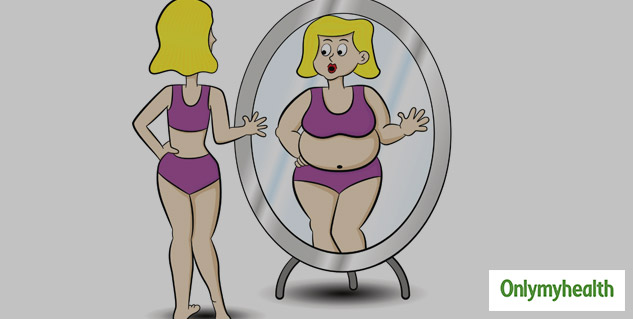
In a world increasingly focused on wellness and nutrition, the line between a healthy lifestyle and an unhealthy obsession with eating ‘clean’ can sometimes blur. Orthorexia nervosa, a term coined by Dr Steven Bratman in 1997, describes a disordered eating pattern characterised by an intense preoccupation with consuming only ‘pure’ or ‘healthy’ foods. While not yet classified as an official eating disorder in the DSM-5, orthorexia is gaining recognition in the mental health and medical communities due to its growing prevalence and potential harm.
Table of Content:-
To learn in detail about orthorexia, we spoke to Zoobiya Islam, Assistant Professor of Nutrition and Dietetics, Sharda University - Greater Noida. She explained to us what orthorexia is, common signs and tips to manage this condition. Here is what she shared with us.
What Is Orthorexia?
Orthorexia differs from other eating disorders like anorexia or bulimia in its focus. Rather than being driven by a desire to lose weight or change one’s body shape, individuals with orthorexia are primarily concerned with the perceived quality and purity of food. This fixation can lead to restrictive eating habits that interfere with daily life, relationships, and overall health.

Also Read: ARFID: The Eating Disorder That Triggers Fear of Food—Causes and Symptoms Revealed
Signs Of Orthorexia
Signs of orthorexia may include:
Excessive time and energy spent on planning and preparing meals to meet strict dietary rules.
Avoidance of foods deemed "unhealthy" to the point of eliminating entire food groups, such as dairy, grains, or fats.
Feelings of guilt or anxiety after consuming foods considered ‘impure.’
Social isolation resulting from the inability to eat meals prepared by others or dine out.
Physical symptoms of malnutrition, such as fatigue, digestive issues, or unintended weight loss, due to overly restrictive diets.
Psychological Impact Of Orthorexia
While orthorexia often begins with good intentions, such as improving overall health, it can escalate into a damaging obsession. The condition can lead to heightened anxiety, depression, and feelings of inadequacy when dietary ‘rules’ are broken. In severe cases, orthorexia may result in nutrient deficiencies and serious physical health consequences.

Also Read: Researchers Suggest Ketogenic Diet as a Potential New Treatment for Anorexia Nervosa
Tips To Manage Orthorexia
Recognising orthorexia is the first step toward recovery. If you or someone you know is struggling with this condition, here are some strategies to help:
1. Seek Professional Help
A qualified mental health professional or dietitian specialising in eating disorders can provide personalised support. Therapy approaches such as Cognitive Behavioral Therapy (CBT) can help address the underlying thought patterns driving orthorexia.
2. Challenge Food Rules
Begin to identify and question rigid dietary beliefs. Ask yourself whether these rules are evidence-based or driven by fear. Gradually reintroduce foods that were previously off-limits, focusing on balance rather than perfection.
3. Practice Mindful Eating
Shift your focus from the ‘purity’ of food to the experience of eating. Pay attention to flavours, textures, and hunger cues. Mindful eating can help rebuild a positive relationship with food.
4. Set Realistic Health Goals
Work to establish attainable and flexible nutritional goals that prioritise overall well-being rather than rigid standards.
5. Rebuild Social Connections
Eating is often a communal activity. Reconnect with friends and family by sharing meals and participating in social events without rigid dietary restrictions.
6. Educate Yourself About Nutrition
Misinformation about food and health can fuel orthorexia. Rely on evidence-based resources or consult a registered dietitian to develop a more balanced understanding of nutrition.
Bottomline
Recovery from orthorexia involves unlearning harmful habits and rediscovering the joy and flexibility of eating. It’s a process that takes time, patience, and support from loved ones and professionals. By addressing the psychological and physical aspects of orthorexia, you can cultivate a healthier relationship with food and embrace a more balanced approach to wellness.
Also watch this video
Read Next
Bhabhi Ji Actress Saumya Tandon Gave Up Sugar, Honey, Jaggery 4 Years Ago: Should You Follow Suit?
How we keep this article up to date:
We work with experts and keep a close eye on the latest in health and wellness. Whenever there is a new research or helpful information, we update our articles with accurate and useful advice.
Current Version